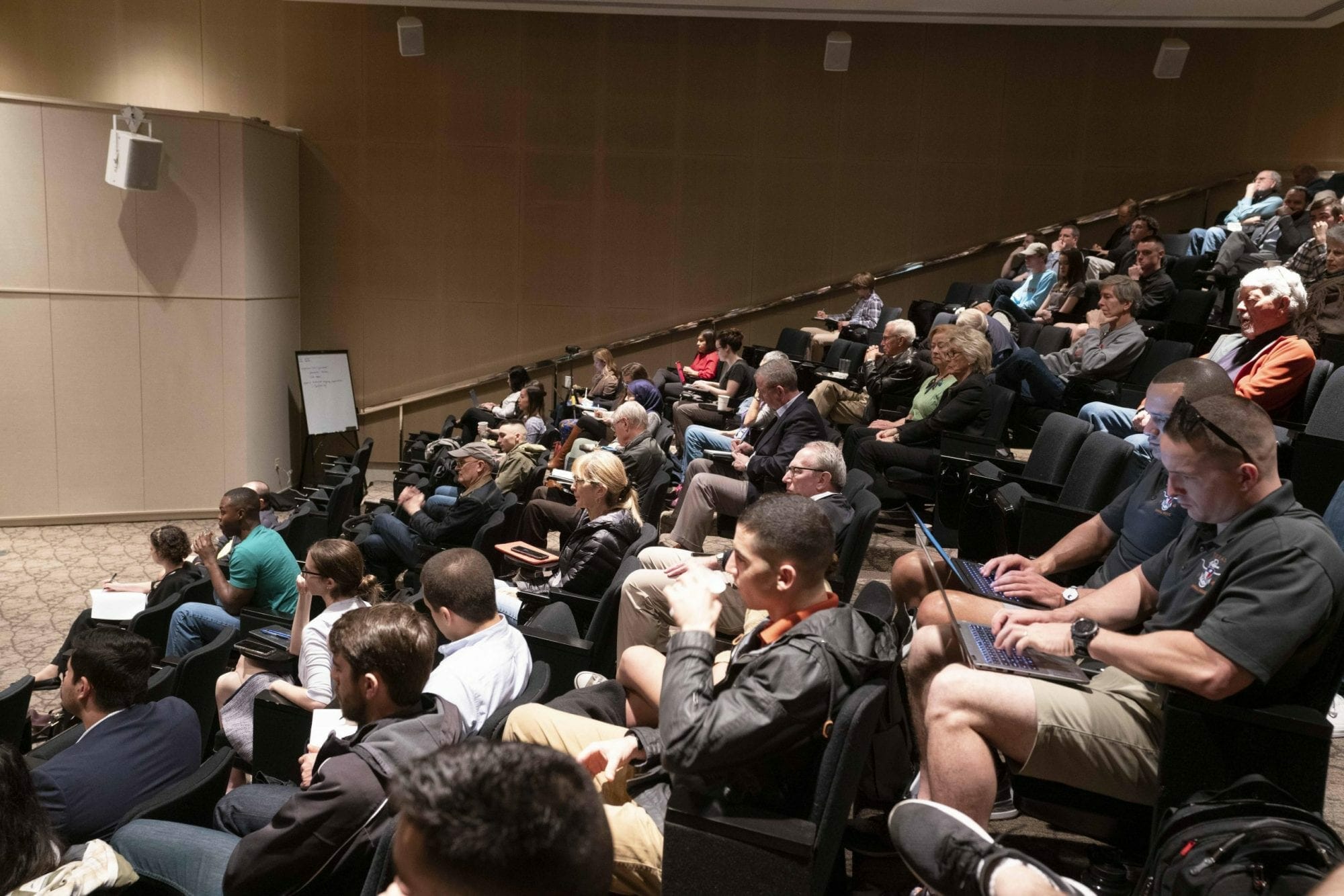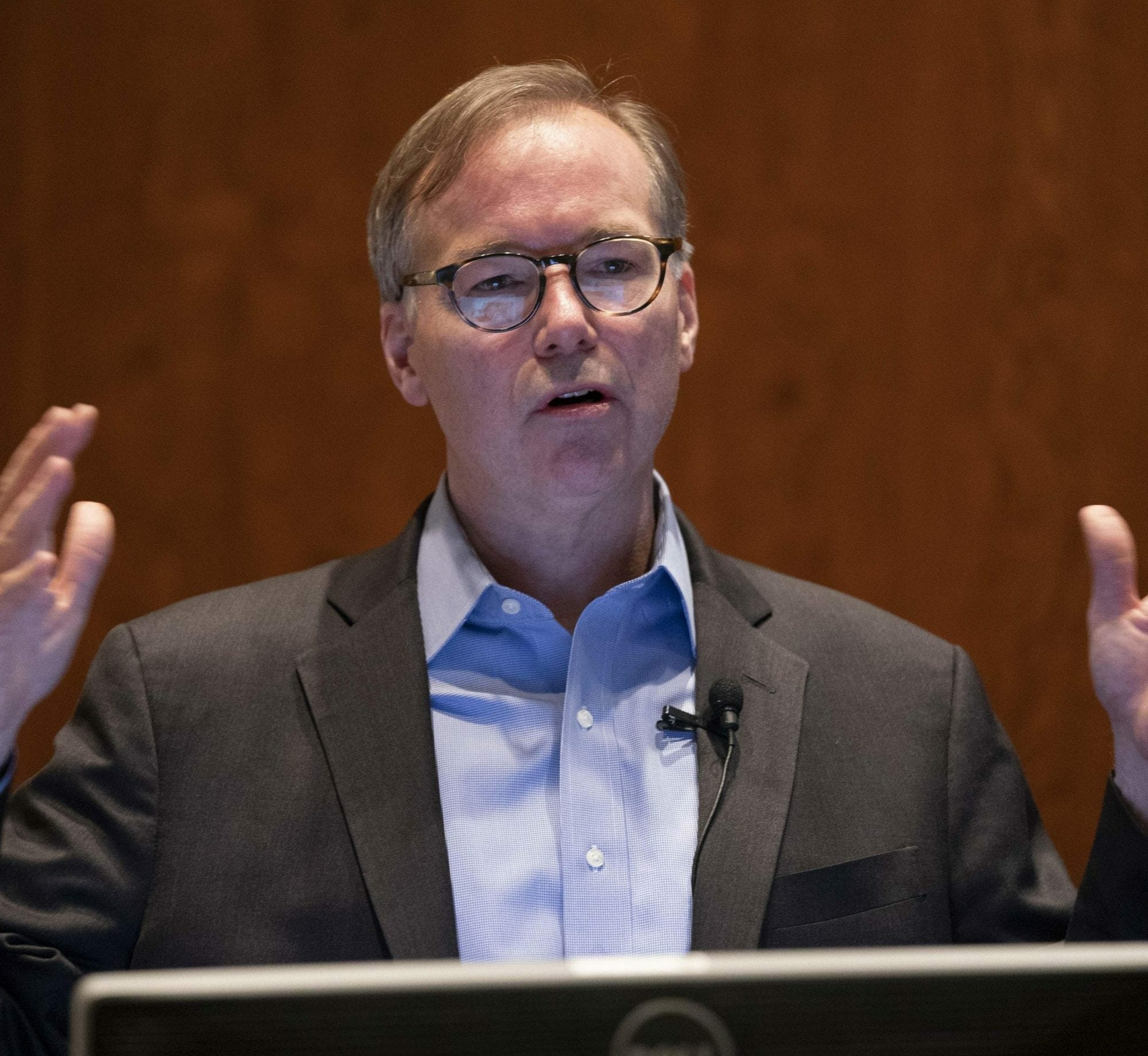By Program

The Longest War: American Failures in Afghanistan and the Prospects for Peace
March 11, 2019 | 12:15 pm | LBJ School of Public Affairs, Bass Hall
On Monday, March 11, 2019, the Strauss Center was delighted to welcome Steve Coll, staff writer at The New Yorker and author, who presented a talk on “The Longest War: American Failures in Afghanistan and the Prospects for Peace.” This talk was part of the Brumley Speaker Series.
Photos from the event can be found here. Video of the event is here.

Coll argued Washington has never reached a consensus on what it means to “win” in Afghanistan or what U.S. intervention is meant to accomplish. The initial goal of the U.S. intervention after September 11, 2001 was to preempt feared follow-on attacks by al-Qa’ida. That was quickly accomplished, but “smart people” in three successive U.S. administrations have wrestled to define what comes next. U.S. political and military leaders acknowledge that there will be no full and complete military victory in Afghanistan, but military operations continue to draw more attention and investment than political initiatives.
Coll highlighted Pakistan activities as a key element of the problem. The two most important U.S. interests in South Asia are in nuclear arms control and counterterrorism. Pakistan is more important to these goals than Afghanistan. This, he argues, puts the United States in a bind. Pakistan’s intelligence service’s Afghan cell—Directorate S—is deeply involved in supporting the Taliban with the long-term goal of installing a client regime.
Coll cited the U.S. relationship with former Afghan President Hamid Karzai as an example of this conundrum. Karzai consistently pressed U.S. leaders to stop Pakistani support for the Taliban, assuming the United States had the power to force Islamabad to obey. He interpreted continued Taliban violence as evidence that Washington actively sought to weaken his government. The core of the problem, according to Coll, is that the United States lacks the leverage to compel Islamabad to stop interfering in Afghanistan.

Coll described the result as a stalemate similar to what existed under Communist rule in the 1980s. The Taliban have no prospect of holding cities, since they lack air power, but they control much of the countryside. Peace negotiations with the Taliban are continuing, but they remain controversial. Observers are split on what rule under a national government that included the Taliban would look like. The Taliban is almost entirely made up of members of the Pashtun ethnic group; other groups like the Hazaras and Tajiks remember violent oppression under the previous Taliban regime. Skeptics also question claims the Taliban has evolved, fearing a return to rules forbidding women to work or pursue education. Others claim the Taliban have evolved since the 1990s and recognizes it would need to recognize minority and women’s rights. The spread of the Islamic State in Afghanistan may also have created a common bond among Kabul, Washington, and the Taliban.
Biography
Steve Coll is a staff writer at The New Yorker, the author of eight books of nonfiction, and a two-time winner of the Pulitzer Prize. He is Dean and Henry R. Luce Professor of Journalism at the Columbia Journalism School. Between 1985 and 2005, he was a reporter, foreign correspondent and senior editor at the Washington Post. There he covered Wall Street, served as the paper’s South Asia correspondent in New Delhi, and was the Post’s first international investigative correspondent, based in London. He served as managing editor of the Post between 1998 and 2004. The following year, he joined The New Yorker, where he has written on international politics, American politics and national security, intelligence controversies and the media.
Coll is the author of “Ghost Wars: The Secret History of the CIA, Afghanistan, and Bin Laden, From the Soviet Invasion to September 10, 2001,” published in 2004, for which he received an Overseas Press Club Award and a Pulitzer Prize. His 2008 book, “The Bin Ladens: An Arabian Family in the American Century,” won the PEN/John Kenneth Galbraith Award for Nonfiction in 2009 and was a finalist for the Pulitzer Prize for Biography. His book “Private Empire: ExxonMobil and American Power” won the Financial Times/Goldman Sachs Award as the best business book of 2012. His most recent book “Directorate S,” a follow-up to “Ghost Wars,” was published in February 2018. He has a B.A. in English and history from Occidental College.


